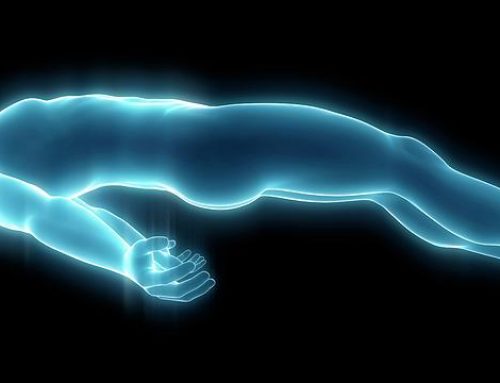Top Surprising Health Benefits of Chocolate
If you like eating chocolate, you’d be delighted to learn the many chocolate health benefits that come with eating high quality, dark chocolate.
The word chocolate is vague. People use this word to refer to candy, chocolate cakes, chocolate soft drinks, and chocolate desserts. These things have nothing to do with health. What we want to describe is chocolate made from and containing a high percentage of cocoa. This typically refers to dark chocolate with no filling and only a small amount of sugar.
If your chocolate consumption is made up of M&M’s, KitKats, and Snickers from the local supermarket you will get no health benefits whatsoever. In fact, the only thing you would gain is excess weight and a high blood sugar level.
The chocolate you want to consume in moderate quantities is dark chocolate with a high percentage of cocoa.
How is Real Chocolate Made?
Cocoa comes from the cacao tree that grows in places like West Africa, Columbia, Mexico, and Costa Rica. The beans from this tree are fermented, dried, and roasted, then separated into cocoa butter and cocoa powder.
High-quality chocolate uses cocoa as its main ingredient. The only other ingredients in quality chocolate may be a small amount of vanilla and sugar. To get the health benefits of chocolate, select dark chocolate that contains at least 70% cacao. At this level, the chocolate has enough flavonoids to provide the health benefits it offers. The chocolate labels often lists cocoa butter and cocoa powder separately
However, you cannot rely on the percentages to determine quality. This is because the cocoa percentage does not guarantee the quality of the manufacturing process.
You will find the best chocolate manufacturers listed at the end of this article.
Quality chocolate has antioxidant qualities. Describing the health benefits requires some medical terminology. To help in understanding, you will find their definition at the end of his article.
10 Health Benefits of Chocolate
Chocolate reduces the risk of heart disease
Antioxidants, like phytochemicals, remove toxins and protects the heart. MDJ research suggests that chocolate can reduce the risk of heart disease. Additional antioxidants which act as polyphenols maintain healthy blood flow and reduces blood pressure.
A PubMed report claims chocolate also lowers bad LDL cholesterol and prevents white blood cells from attaching themselves to arterial walls. This benefits people who suffer from atherosclerosis, a condition of hardened and narrowed arteries caused by plaque.
Reduces the risk of stroke
A MedicalNewsToday report claims chocolate may reduce the risk of stroke.
Canadian scientists have verified this in a study with 44,489 people The study produced these findings:
- People eating chocolate were 22% less likely to suffer a stroke.
- People who had suffered a stroke but consumed chocolate regularly were 46% less likely to die.
Chocolate protects the nervous system
Cacao, the main ingredient in chocolate, contains resveratrol which is a potent antioxidant. According to The International Journal of Medical Studies it shields nerve cells from damage.
Prevents cognitive decline
Chocolate can keep your brain healthy and prevent cognitive decline and memory loss. Scientists at the Harvard Medical School have confirmed this and suggest 2 cups of hot chocolate a day keeps the brain healthy and prevents memory loss.
A study published in the Appetite journal suggested that eating chocolate once a week has the potential of improving people’s cognitive function because it improves blood flow to the brain.
Helps insulin resistance
A PubMed report from 2005 claims, quote: “cocoa reduces blood pressure and insulin resistance and improves endothelium-dependent vasodilation in hypertensives.” Insulance resistance is a pre-diabetic condition.
Prevents harmful UV damage
Chocolate helps in preventing UV damage from strong sunlight. This may help in giving you better complexion and fewer wrinkles.
This benefit comes from the fact the chocolate has antioxidants called flavanols and epicatechins. Refer to this PricePlow article titled “Epicatechins- The Dark Horse Behind Dark Chocolate.”
Reduces the Body Mass Index (BMI)
Studies have shown that consuming a little chocolate five times a week will reduce body weight and produce a lower Body Mass Index (BMI).
Heightens feelings of elation and pleasure and prevents feeling of stress
Dark chocolate contains tryptophan, a substance that causes the brain to produce serotonin. This hormone produces feelings of elation and pleasure. Another substance found in chocolate is phenylethylamine. It stimulates feelings of pleasure Finally, chocolate reduces levels of the stress hormone cortisol.
Benefits fetal growth during pregnancy
Here’s a final benefit, this one for pregnant ladies.
Science Daily refers to a presentation made at the 2016 Pregnancy Meeting of the Society of Maternal-Fetal Medicine in Atlanta, Ga. The presentation claimed that mothers who eat 30 grams of chocolate a day during pregnancy might aid fetal growth and development.
Dark chocolate is nutritious
Chocolate is nutritious provided you buy a high-quality dark chocolate. A 100 gram of dark chocolate made with 70-85% cocoa has 11 grams of fibre and contains the following minerals:
- 67% of the RDA for Iron.
- 58% of the RDA for Magnesium.
- 89% of the RDA for Copper.
- 98% of the RDA for Manganese.
- It also has plenty of potassium, phosphorus, zinc and selenium.
RDA is the acronym for “Recommended Dietary Allowance” per day for healthy people.
The Most Famous Chocolate Makers
You may be interested to know the names of the most famous chocolate makes in the world. Regrettably, none of them resides in Australia. Here’s the list:
- Valrhona (France)
- Godiva Chocolatier (Brussels, Belgium).
- Richart (Paris, France) …
- Puccini Bomboni (Amsterdam, Netherlands)
- Richard Donnelly Fine Chocolates (Santa Cruz, California, USA)
Definitions
Antioxidants protect the body from damage caused by harmful molecules called free radicals. Antioxidants include vitamins (such as vitamins C and E), some minerals (such as selenium), and flavonoids, which are found in plants. The best sources of antioxidants are fruits and vegetables
Phytochemicals. These are chemical compounds produced by plants and found in fruits, vegetables, nuts, legumes, and grains. The most common varieties include carotenoids, polyphenols, flavonoids, anthocyanins, lignans, isoflavones, and resveratrol.
Polyphenols. See phytochemicals above. They are a phytochemical.
Flavanols. Compounds found in apples, grapes, tea, cocoa and cherries, which account for the antioxidant effect provided by red wine and green tea
Epicatechin. A beneficial flavonol found in dark chocolate and also in berries , apples, ginger, and grape seeds
Tryptophan. An essential amino acid that our bodies cannot make. The body converts tryptophan absorbed from food into serotonin. See below.
Serotonin. This is a nerve cell substance that sends signals between your nerve cells. It is made from tryptophan (see above) absorbed from the food we eat like nuts, cheese, and red meat.








Leave A Comment